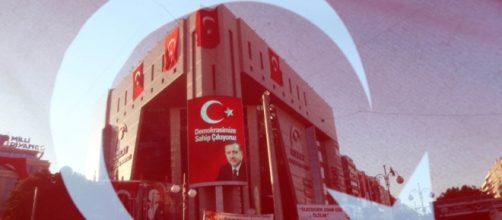What has triggered the rift between Turkey and the Netherlands? Turkish government officials were stopped from rallying support for a referendum that would expand the powers of President Recep Tayyip Erdogan. The Turkish Foreign Affairs Minister Mevlut Cavusoglu was prevented from entering the Netherlands to prevent the rally in Rotterdam from holding. The plane carrying the Minister was prevented from landing on Saturday.
The rally is in support of a constitutional referendum that would grant more powers to Erdogan. This new amendment to the constitution will hinder free speech and silence the voice of minorities.
There is already a crackdown on the opposition, and the media after the attempted coup of 2016.
The Turkish family minister Fatma Betul Sayan Kaya was also barred from entering the Turkish consulate after entering the Netherlands by car. The minister refused to exit the vehicle but was eventually deported by Dutch police.
Turkish response
In a rally, President Erdogan called the Dutch “remnants of Nazism” and “fascist” referring to the Netherlands as a “Banana Republic.” Both countries have expelled their diplomats and barred them from returning to their consulates.
Dutch Prime Minister Mark Rutte refers to Erdogan’s comments as "a crazy remark, of course. But I understand they are angry, but this is, of course, way out of line."
Turkey vs the EU
Austria, Switzerland, and Germany also banned rallies in support of the constitutional amendment.
Germany has a large population of Turks numbering about 1.4 million making it a very important place to get votes. The Turkish Foreign affairs minister appeared in the Turkish consulate in Hamburg after the German government banned the planned rallies around Germany.
Turkish President Recep Tayyip Erdogan accused Germany of "Nazi practices" accusing the German Chancellor of “mercilessly supporting terrorism”, Chancellor Angela Merkel calls the comparison "unacceptable".
President of the European Council Donald Tusk said Turkey is “completely detached from reality” for referring to the Dutch as fascists.
Some contentious contents of the possible new constitution
- A change from a parliamentary to a presidential system of government.
- The president may be a member of a political party and even be the leader of the party with the power to choose candidates for parliamentary election granting him control of both the executive and legislature.
- A new impeachment procedure that is unrealistic – a simple majority of MPs will need to sign for beginning the process, a three-fifths majority to start the commission of inquiry and two-third of MPs will be needed to finalise the judicial process.
- The president can appoint one or more VPs; the VPs will act on behalf of the president if there is a vacuum.
- The president can dissolve parliament at will, however, parliament can call for early elections with a three-fifths majority.
- The president will have the power to appoint ministers and choose most senior judges and enact certain laws by decrees.
- Presidential and parliamentary elections will hold on the same day after five years.
The amended constitution is expected to change about 2000 laws.
Erdogan and the future of Turkey
In Obama’s address to the Ghanaian parliament, “Africa does not need strongmen, it needs strong institutions.” There is a lesson in this message for every democracy; the thirst for power by African leaders has destroyed the continent. Governments are run like a family business without any concern for the social welfare of the citizens.
The Turkish people must understand the implications of this referendum and make a wise decision. The international community must also encourage the Turkish state to make the right choice. The Turkish state must sue for peace with its allies and not create more tension in the region.

